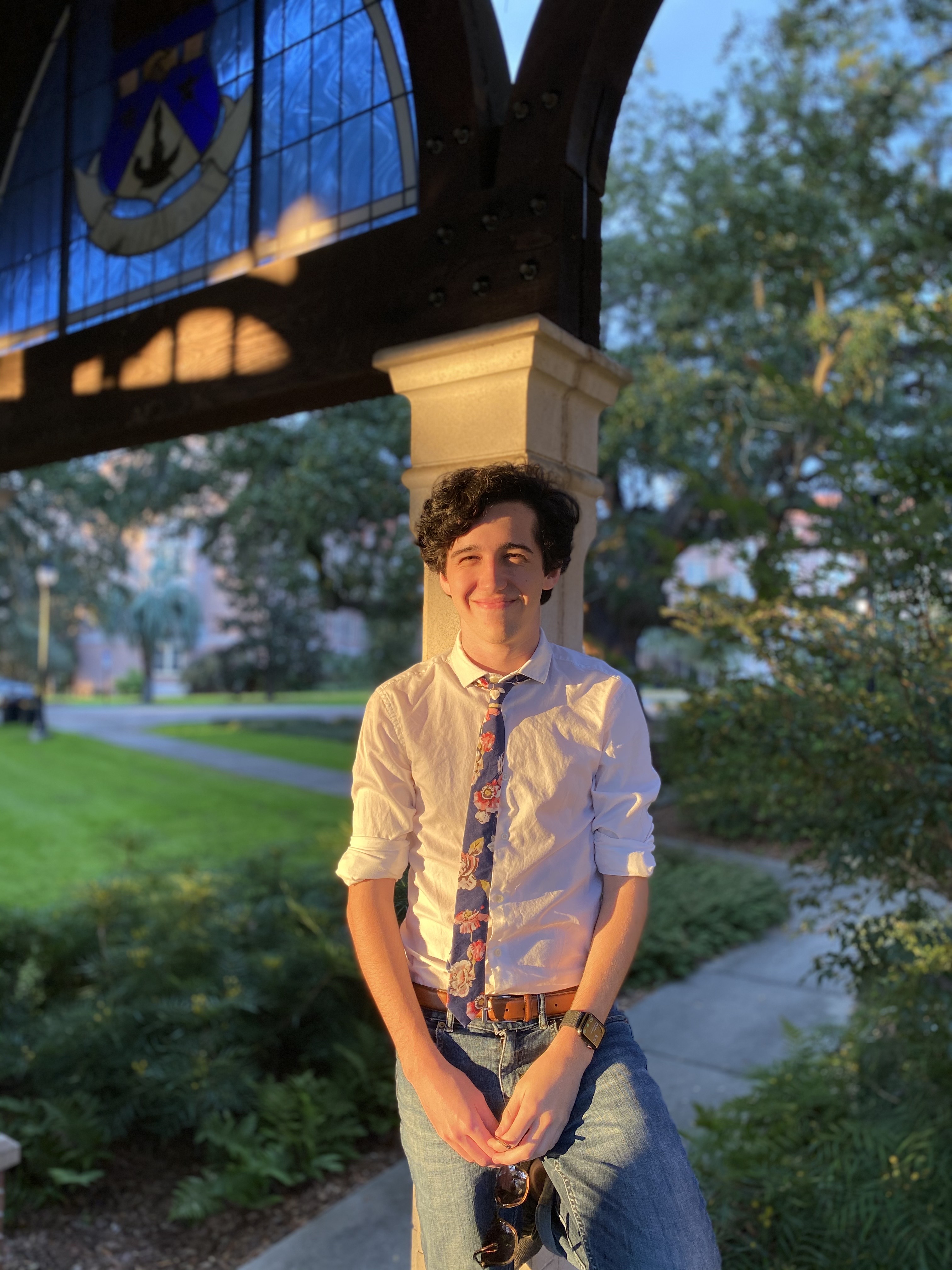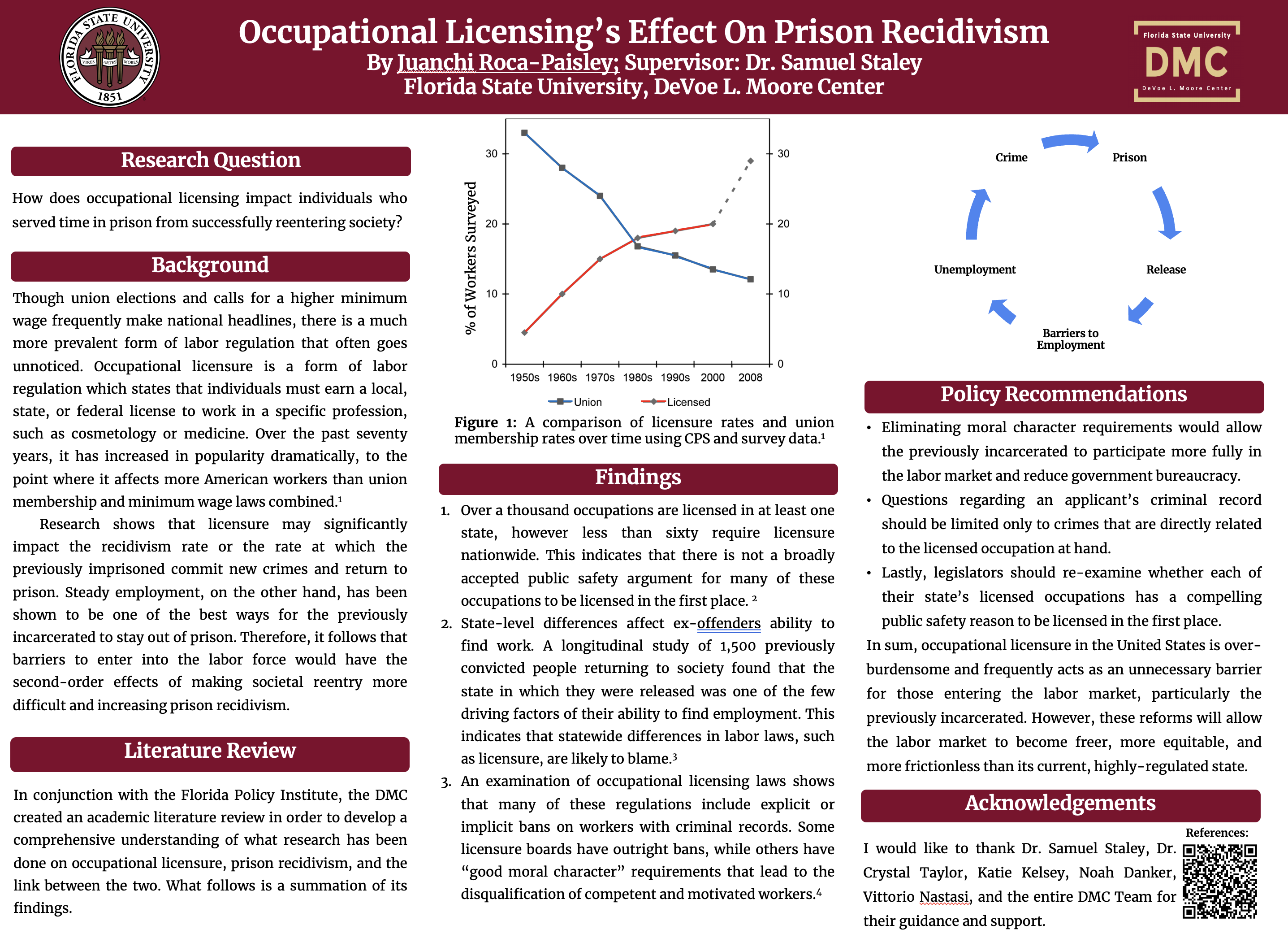Research Symposium
23rd annual Undergraduate Research Symposium, April 6, 2023
Juanchi Roca-Paisley Poster Session 2: 1:30 pm - 2:30 pm/ Poster #301

BIO
Juanchi Roca-Paisley is a fourth year Economics and Political Science student at FSU. There, he serves as a research assistant at the DeVoe L. Moore Center, where he has focused on the subjects of occupational licensure, prison recidivism, and affordable housing. He is also a student fellow at the Institute of Politics in the College of Social Sciences and Public Policy, where his work promotes civic engagement and he meets face to face with experts in the field of politics. Following graduation, he plans to return to his hometown of Miami where he will serve as a Teach For America corps member.
Occupational Licensing's Effect on Prison Recidivism
Authors: Juanchi Roca-Paisley, Dr. Samuel StaleyStudent Major: Economics and Political Science
Mentor: Dr. Samuel Staley
Mentor's Department: The DeVoe L. Moore Center Mentor's College: College of Social Science's and Public Policy Co-Presenters:
Abstract
The United States has one of the highest incarceration rates in the world, due in large part to its high rates of prison recidivism, wherein offenders who have completed their sentences return to prison shortly after their release. Though research shows that the ability to find work is critical for their societal reintegration, high barriers to entry into the labor market make finding work especially difficult for the previously incarcerated, increasing the likelihood that they will reoffend. These barriers usually take the form of government regulation. Though often overlooked, occupational licensure is the most common labor regulation in the United States, with nearly a third of all workers requiring licensure to legally work in their profession of choice. This research asks, how profoundly does occupational licensure affect ex-offenders' ability to find work following their release?
I have conducted an academic literature review both detailing the economic effects of occupational licensure on labor friction and determining how the law explicitly or implicitly bars ex-offenders. At its strictest, licensure completely bans those with previous convictions. More frequently, occupational licenses simply include a vague “good moral character” requirement that often leads to licensure boards rejecting the previously incarcerated with impunity. Even at their most lenient, the requisite time and capital necessary to obtain a license frequently dissuades ex-offenders from pursuing an occupation requiring licensure. Rather than seeking employment in the profession they are best suited for, ex-offenders are left to consider the remaining jobs which the state will allow them to freely pursue.
Keywords: Occupational Licensure, Prison Recidivism, Mass Incarceration

